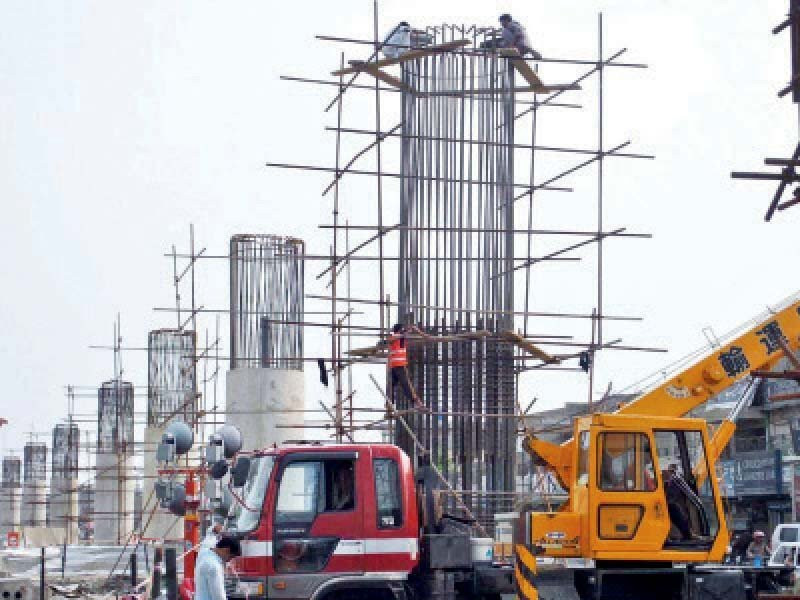
The government has proposed the inclusion of around 160 new schemes worth Rs2.2 trillion in next year’s federal development plan. While some of them are critically important, others are intended as a prelude to the electoral campaign and stem from the incumbent set-up's political needs.
The new schemes include an unapproved Dera Ismail Khan Package of Rs57 billion and projects in the Larkana district – the two territories belonging to the political heads of the allied parties. Many new feasibility studies for roads have been added, which at this time could have been postponed due to a lack of fiscal muscle.
The government added the Rs5 billion unapproved Youth Laptop Scheme project but proposed only Rs1 billion for the next fiscal year. The project seems part of next year’s election campaign.
The draft of the Public Sector Development Programme 2022-23 that the Annual Plan Coordination Committee (APCC) approved on Saturday suggested that the coalition government was under pressure to accommodate as many projects as possible ahead of the next general elections
The size of the PSDP has ballooned despite no fiscal space available and the government is under pressure to reduce wastage.
Over 1,100 projects worth Rs6.4 trillion have been included in the PSDP 2022-23. Against these schemes, an allocation of Rs800 billion has been proposed despite the fact that the Ministry of Finance has not yet fully committed the money.
The details further showed that at this stage about 160 new projects are proposed for inclusion in the PSDP having a total cost of Rs2.2 trillion. But the government has allocated only Rs85 billion for these schemes to carry out work in the next fiscal year which is hardly 4% of their total cost. Many schemes will take a longer time for completion but their inclusion has further thinned out the scarce resources.
The government has included many unapproved schemes in the draft PSDP and now was pushing through their approval processes, compromising scrutiny and technical appraisers.
The meetings of the Central Development Working Party (CDWP), having a mandate to approve up to Rs10 billion projects, and the Departmental Developmental Working Party (DDWP) with the mandate to sanction up to Rs2 billion cost schemes, are taking place to complete approval processes, the sources said.
Prime Minister Shehbaz Sharif also held a meeting on Monday to scrutinise the development portfolio. The sources said that the proposed PSDP would further undergo changes in light of the directions given by the prime minister.
Similarly, a major addition had been made to the portfolio of the National Highway Authority (NHA). The government proposed including 62 new schemes in the NHA portfolio costing Rs903 billion. But Rs36 billion had been proposed for the new schemes or less than 4% of the total cost.
The new schemes included five projects with a value of Rs387 billion that would be completed through public-private partnership. But the government made only Rs8.6 billion allocation against these five projects. For the Rs191.4 billion worth Hyderabad-Sukkur motorway, a Rs4 billion allocation was proposed at this stage for the next fiscal year. The Kharian-Rawalpindi motorway project worth Rs96 billion was also included and Rs4 billion was allocated for the next fiscal year.
For Rs40 billion Layari elevated freight corridor, only Rs300 million was proposed for the next fiscal year. Without furnishing any details, the Rs57 billion Dera Ismail Khan Improvement Package was added to the PSDP but with only Rs2 billion allocation for the next fiscal year.
The 2016 approved bridge at Indus River, Larkana, had also been revived but only Rs500 million was proposed for the next fiscal year.
Despite the lack of resources, the government proposed 11 new schemes for the Higher Education Commission that would require Rs18 billion more resources. But the actual allocation for the new schemes was only Rs3.1 billion. The Rs5 billion PM Youth Laptop scheme had also been made part of the PSDP.
Announced by Premier Shehbaz during his recent visit, the Rs2.5 billion University of Gwadar scheme was added but it had been allocated a mere Rs350 million for the next fiscal year.
In a sheer wastage of resources, the federal government also included the Locust Emergency and Food Security Project in the PSDP – a new scheme that would cost Rs32 billion. An allocation of Rs1 billion was made for the next fiscal year.
The locust scheme was prepared in the name of farmers last year but its actual plan was to buy luxury vehicles and laptops. Under the project, the food ministry wanted to buy 310 double-cabin vehicles, and 200 laptops and create about 322 positions rather than helping the farmers.
The Planning Commission had in the past also opposed the locust project on the ground that after the 18th Constitutional Amendment, the subject had been devolved to provinces.
As many as 11 new projects of the Ministry of Information worth Rs8 billion and 13 new schemes of inter-provincial coordination ministry had been included with meagre resources allocated to them for the next fiscal year.
The government proposed inclusion of seven new schemes in the Ministry of Maritime Affairs and allocated Rs2.1 billion for the next fiscal year. But it had no money to complete work on the 1.2 million gallons per day ROD plant project in Gwadar. Only Rs84 million had been proposed for the ongoing water scheme against the remaining requirement of Rs2.2 billion.
But a critically important project, the maintenance dredging of the Gwadar port project was included and Rs1 billion was given for the next fiscal year. The project was essential to ensure the docking of big ships at Gwadar port.
Further, at a time when the government had no resources, it carelessly added four schemes to the Ministry of National Heritage and Culture and allocated Rs250 million for the next fiscal year.
The Rs1.1 trillion Mainline-I project of the CPEC was included as a new scheme for the next fiscal year with a meagre allocation of Rs5 billion.
The government also proposed Rs10 billion worth of Rawat-Faizabad Metro Bus with Rs1 billion allocation and Bhara-Kau-Faizabad Metro Bus, which would also cost Rs10 billion. However, it only allocated Rs500 million in the next year’s PSDP. Interestingly, no studies were conducted before their inclusion.
A sum of Rs60 billion was also separately allocated for parliamentarians' schemes.









1732012115-0/Untitled-design-(14)1732012115-0-270x192.webp)








COMMENTS (1)
Comments are moderated and generally will be posted if they are on-topic and not abusive.
For more information, please see our Comments FAQ